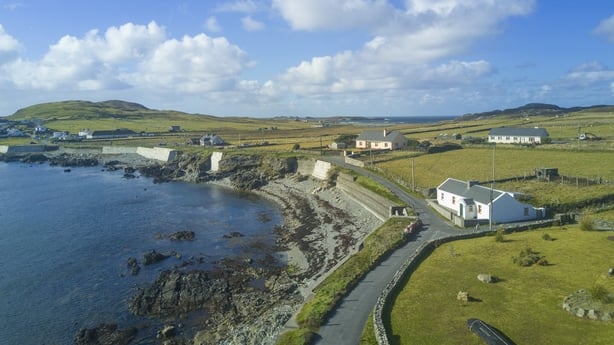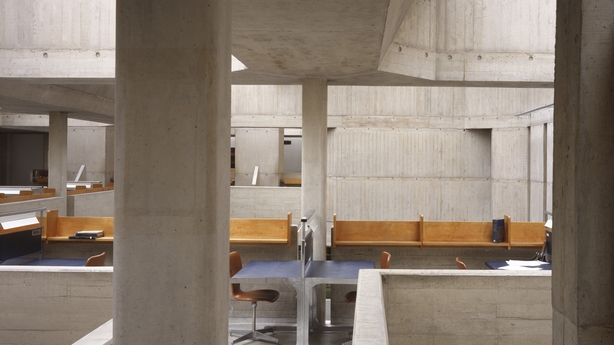The board of Trinity College Dublin has said it has decided to work with the people of Inishbofin and the statutory authorities to find a solution to the question of what to do with skulls that were stolen from the island over 130 years ago.
The board met this afternoon to discuss the future of the human remains, which the university says were removed from the island off Galway's coast for research purposes in 1890 without islanders' consent, and are now stored in Trinity.
In a statement, the university said the board of Trinity College Dublin has decided to work with the people of Inishbofin and the statutory authorities to find a solution that respects the wishes of the islanders.
We need your consent to load this rte-player contentWe use rte-player to manage extra content that can set cookies on your device and collect data about your activity. Please review their details and accept them to load the content.Manage Preferences
People from Inishbofin have been campaigning for the 13 skulls, which were taken illegally, to be brought back to the island for burial.
The remains were taken in 1890 from St Colman's monastery on the island by two Trinity-affiliated academics for research and are still held by the university in Dublin.
The skulls were of parishioners, dating back to the early 1500s.

It was common practice at the time, experts say, to keep such remains in monasteries for safe-keeping.
A campaign has been under way for several years to have the skulls returned.
Read more: The case of the missing skulls from Inishbofin
An internal group, the Trinity Legacies Review Working Group, was set up to deal with the matter, as well as examining other legacy issues.
The college said the skulls in question are not on public display and are kept under lock and key in its anatomy museum.
Director of Inishbofin Heritage Museum and Local Historian Marie Coyne has told RTÉ's News at One that "everybody in Inishbofin" wants the skulls back.
"If someone stole your wife, daughter or grandmother's remains and kept them for doing tests on without permission ... taking the skulls from the graves was wrong in the first place, and these people had hard lives and came from poor communities," she said.
Another item to be considered at a later date by TCD is to whether to rename its main library.
It was named in 1978 after the philosopher George Berkeley, whose history as a slave-owner has since been well documented. The matter will be discussed further in January.

It all comes as universities and other institutions across the globe come under renewed repatriation pressure over their collections.
The items, which date between 100AD and 975BCE, also include a set of four canopic jars, and items of cartonnage or coverings.
Speaking at the time, Egyptian Ambassador to Ireland Mohamed Sarwat Selim thanked all stakeholders for their cooperation "in seeking the return of the Egyptian mummy and the set of the canopic jars to our homeland".
Additional reporting Conor Hunt







